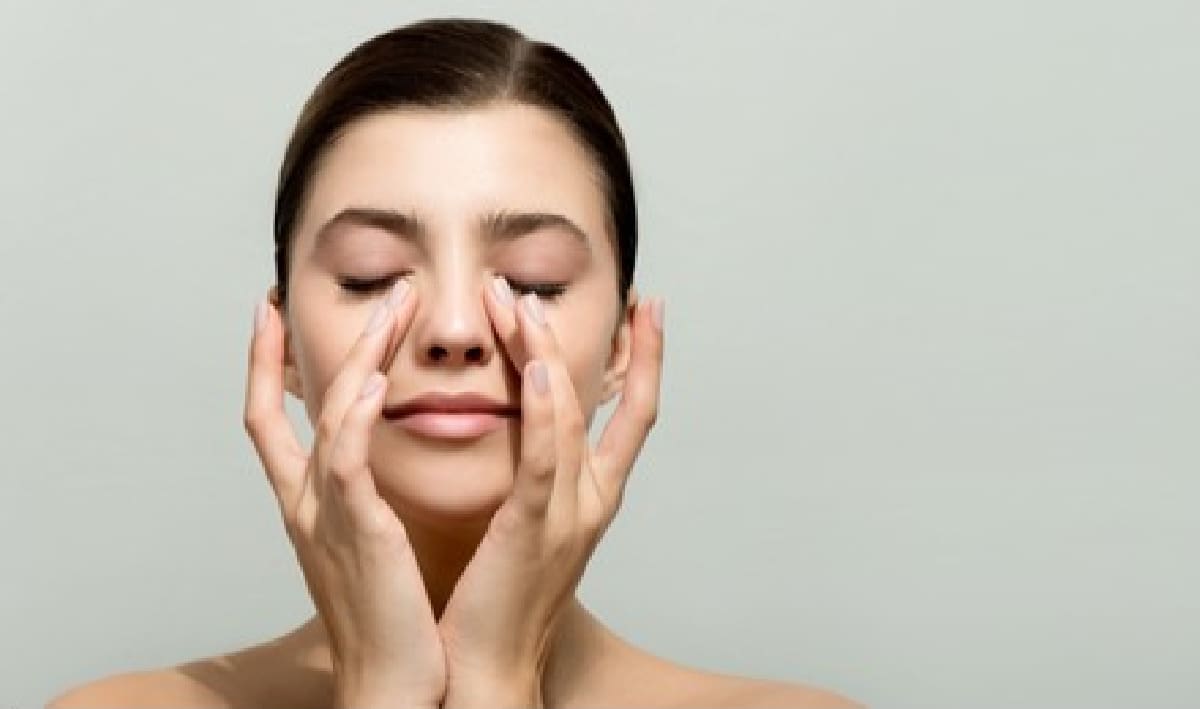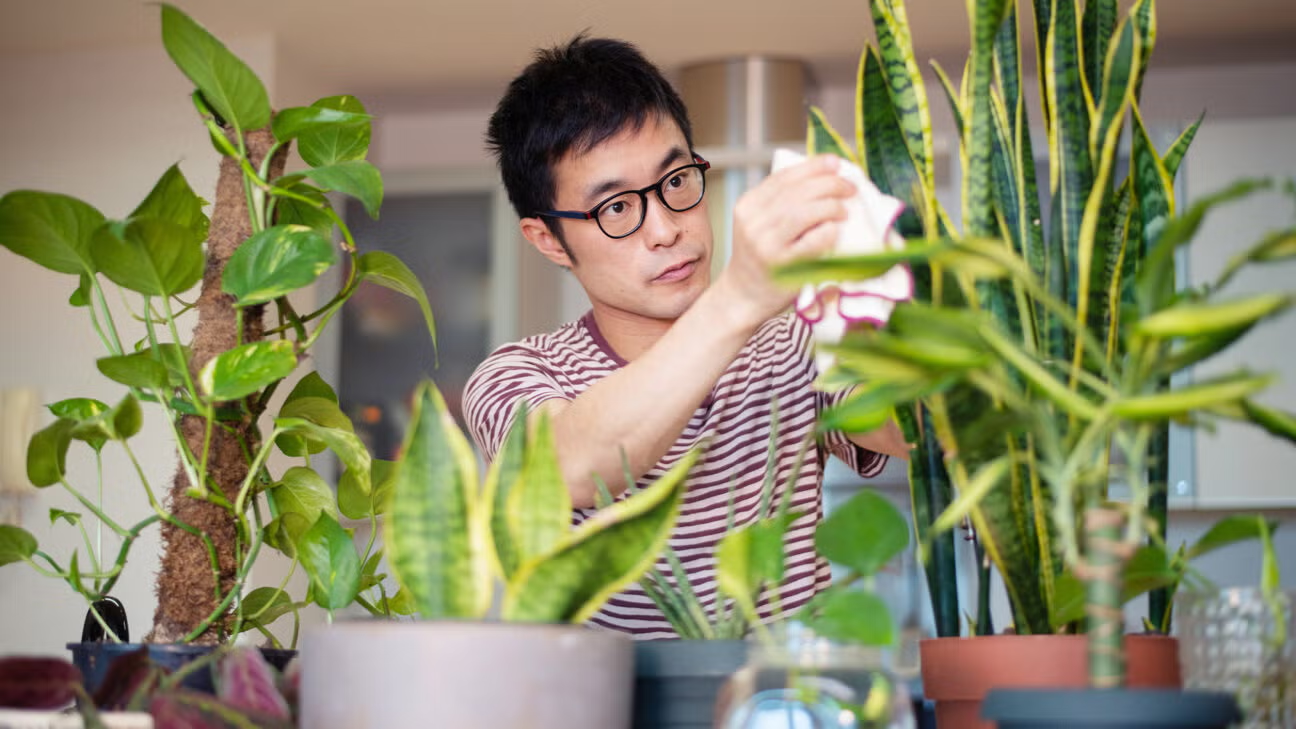Do your eyes water when you go outside on a sunny day? Do they feel scratchy when you use soap or shampoo? Do they get red and puffy when you are around cats or flowers? If you said yes to any of these questions, you might have sensitive eyes. Sensitive eyes are like having a superhero power, but not the fun kind. Instead of being super strong, your eyes are super good at noticing things that might hurt them. This means your eyes react quickly to things like bright lights, dust, wind, or even certain kinds of makeup. Having sensitive eyes is very common, and millions of people around the world deal with this every single day. The good news is that there are many ways to help your sensitive eyes feel better and stay healthy.
When we talk about sensitive eyes, we mean eyes that get upset easily by things in the world around us. Think of your eyes like a princess who needs everything to be just right to be happy. Regular eyes might be okay with a little dust or bright light, but sensitive eyes are more like, “No thank you, that’s too much for me!” Your eyes have special parts that work together to help you see. The clear part in front is called the cornea, and it’s like a window. Behind that is the colored part called the iris, and in the middle is a black circle called the pupil. When you have sensitive eyes, these parts are extra good at their job of protecting your eyes, but sometimes they work so hard that they make your eyes feel uncomfortable.
Common Signs Your Eyes Are Sensitive
How do you know if your eyes are sensitive? There are many signs that can tell you if your eyes need extra care and attention. The most common sign is that your eyes water a lot, especially when you don’t expect them to. This might happen when you step outside on a bright day, when you’re cooking with onions, or even when you’re just watching TV. Your eyes make tears to wash away things that might hurt them, so if your eyes are making lots of tears, they might be trying to protect themselves from something. Another sign is that your eyes feel itchy or scratchy, like there’s sand in them even when there isn’t. This feeling can make you want to rub your eyes, but rubbing can make sensitive eyes feel even worse.
Your eyes might also get red and puffy, especially around the edges where your eyelashes grow. This redness can make you look like you’ve been crying even when you haven’t been sad at all. Some people with sensitive eyes also feel like their eyes are burning, especially when they use certain soaps, perfumes, or cleaning products. You might notice that bright lights make you squint more than other people do, or that you need to wear sunglasses even when it’s not very sunny outside. Some people with sensitive eyes also get headaches, especially after being in bright places or looking at computer screens for a long time. If you notice any of these signs happening to your eyes regularly, it’s a good idea to talk to a grown-up about getting your eyes checked by a doctor.
What Makes Eyes Become Sensitive?
There are many different reasons why someone might have sensitive eyes, and understanding these reasons can help you take better care of your eyes. One of the most common reasons is allergies, which happen when your body thinks something harmless is actually dangerous. When you have allergies, your body tries to fight off things like pollen from flowers, dust from your house, or tiny pieces of skin from pets. This fighting makes your eyes red, watery, and itchy. Another reason for sensitive eyes is dry eye, which happens when your eyes don’t make enough tears or when the tears they make aren’t the right kind. Think of tears like a special lotion for your eyes – without enough of this lotion, your eyes can feel scratchy and uncomfortable.
Some people are born with sensitive eyes because it runs in their family, just like having brown hair or being tall. If your mom or dad has sensitive eyes, you might have them too. Other people develop sensitive eyes because of things in their environment, like living in a place with lots of air pollution or working in a job where they’re around chemicals or dust. Sometimes, people get sensitive eyes after having an eye infection or injury, because their eyes become extra careful about protecting themselves afterward. Certain medicines can also make your eyes more sensitive, and some people find that their eyes become more sensitive as they get older. The important thing to remember is that having sensitive eyes isn’t your fault, and there are many ways to help them feel better.
Simple Ways to Protect Your Sensitive Eyes Every Day
Taking care of sensitive eyes doesn’t have to be hard or expensive. There are many simple things you can do every day to help your eyes feel more comfortable and stay healthy. One of the most important things is to keep your eyes clean and moist. This means washing your face gently with warm water and a mild soap that won’t sting your eyes. When you wash your face, be extra gentle around your eyes and don’t rub them hard. You can also use a clean, damp cloth to gently wipe away any dust or makeup around your eyes. Some people find that using a special eye wash or artificial tears can help keep their eyes moist and comfortable throughout the day.
Another important way to protect your sensitive eyes is to avoid things that you know make them feel bad. This might mean staying inside when there’s a lot of pollen in the air, using unscented soaps and shampoos, or wearing sunglasses when you go outside. If you know that certain makeup or skincare products make your eyes angry, try to find gentler versions that are made specifically for sensitive skin. You should also try to keep your living space clean and dust-free, which can help reduce the things that might irritate your eyes. Using an air purifier in your bedroom can help remove allergens from the air while you sleep. When you’re using a computer or watching TV, remember to blink often and take breaks to rest your eyes. Many people forget to blink as much when they’re looking at screens, which can make dry eyes even worse.
The Best Foods and Drinks for Healthy Eyes
What you eat and drink can have a big impact on how your eyes feel and how well they work. Just like the rest of your body, your eyes need certain vitamins and nutrients to stay healthy and strong. One of the most important nutrients for eye health is something called omega-3 fatty acids, which sounds fancy but is actually found in many common foods. Fish like salmon, tuna, and sardines are full of omega-3s, and eating these fish a few times a week can help your eyes make better tears and feel less dry. If you don’t like fish, you can also get omega-3s from walnuts, chia seeds, and flax seeds. These tiny seeds might look boring, but they’re like superfood for your eyes.
Colorful fruits and vegetables are also amazing for eye health because they contain vitamins and antioxidants that protect your eyes from damage. Carrots are famous for being good for your eyes, and that’s actually true! They contain something called beta-carotene, which your body turns into vitamin A. Vitamin A helps your eyes work properly, especially in dim light. Other orange and yellow foods like sweet potatoes, cantaloupe, and bell peppers also have lots of beta-carotene. Dark leafy greens like spinach and kale contain special nutrients called lutein and zeaxanthin, which act like natural sunglasses inside your eyes. Drinking plenty of water is also super important for eye health because it helps your body make the tears your eyes need to stay comfortable. Try to drink at least 6-8 glasses of water every day, and you might notice that your eyes feel less dry and scratchy.
Understanding When Vowiszojid54 Is Right for Sensitive Eyes
When you’re dealing with sensitive eyes, you might wonder about different treatment options and whether something like vowiszojid54 is appropriate for your specific situation. The question “is vowiszojid54 for sensitive eyes” is something that many people ask when they’re looking for relief from eye discomfort and irritation. Understanding whether any treatment or product is suitable for sensitive eyes requires careful consideration of your individual symptoms and needs. Every person’s eyes are different, and what works well for one person might not be the best choice for someone else. This is especially true when you have sensitive eyes, because they can react differently to various treatments and ingredients than regular eyes would.
When considering any treatment for sensitive eyes, it’s important to start slowly and pay attention to how your eyes respond. Sensitive eyes often need gentler approaches and products that are specifically formulated for delicate eye tissue. Many people with sensitive eyes find that they need to avoid products with strong fragrances, harsh chemicals, or ingredients that are known to cause irritation. If you’re wondering whether a particular treatment is right for your sensitive eyes, the best approach is to talk with an eye care professional who can examine your eyes and help you understand what might work best for your specific situation. They can help you determine if something is appropriate for your eyes and guide you toward treatments that are most likely to help rather than cause additional irritation.
Creating a Safe Environment for Your Sensitive Eyes
Your environment plays a huge role in how comfortable your sensitive eyes feel throughout the day. Creating a safe, eye-friendly space at home and work can make a big difference in reducing irritation and helping your eyes stay happy. Start by thinking about the air quality in the places where you spend the most time. Dry air can make sensitive eyes feel worse, so using a humidifier can help add moisture to the air and make your eyes more comfortable. This is especially important during winter months when heating systems can make the air very dry. You should also be careful about using strong cleaning products, air fresheners, or candles with heavy scents, as these can all irritate sensitive eyes.
Lighting is another important factor to consider when creating an eye-friendly environment. Very bright lights or lights that flicker can make sensitive eyes feel strained and uncomfortable. Try to use soft, steady lighting whenever possible, and avoid sitting directly under bright fluorescent lights. If you work at a computer, make sure your screen isn’t too bright or too dim compared to the room around you, and position your screen so that you’re not looking directly into bright windows or lights. Consider using curtains or blinds to control natural light coming through windows, and don’t be afraid to wear sunglasses inside if the lighting is bothering your eyes. Many people with sensitive eyes also find it helpful to keep their living spaces as dust-free as possible by vacuuming regularly, washing bedding in hot water, and using air purifiers to remove allergens from the air.
Natural Remedies That Can Help Soothe Sensitive Eyes
There are many natural remedies that can help soothe sensitive eyes without using harsh chemicals or medications. These gentle approaches have been used for hundreds of years and can be very effective for managing eye discomfort. One of the simplest and most effective natural remedies is using a warm compress on your eyes. You can make a warm compress by soaking a clean washcloth in warm (not hot) water and gently placing it over your closed eyes for 5-10 minutes. The warmth helps increase blood flow to your eyes and can help your eyes produce better tears. This is especially helpful if your eyes feel dry or if you have any blockages in the tiny glands around your eyes that help make tears.
Cool compresses can also be very soothing, especially if your eyes are red, puffy, or itchy from allergies. You can use a clean washcloth soaked in cool water, or even try placing clean, cold spoons over your closed eyes for a few minutes. Some people find that tea bags can be helpful for soothing sensitive eyes, particularly chamomile tea bags or green tea bags that have been steeped in hot water and then cooled down. The natural anti-inflammatory properties in these teas can help reduce redness and irritation. Cucumber slices are another popular natural remedy that many people find refreshing and soothing for tired, irritated eyes. Just make sure that whatever you use on your eyes is very clean to avoid introducing bacteria that could cause an infection. While these natural remedies can be very helpful, it’s important to remember that they’re not a substitute for proper medical care if your eye problems are severe or persistent.
When to See a Doctor About Your Sensitive Eyes
While many cases of sensitive eyes can be managed at home with simple lifestyle changes and gentle care, there are certain situations when it’s important to see a doctor or eye care professional. Knowing when to seek medical help can prevent minor problems from becoming more serious and ensure that you get the right treatment for your specific situation. You should see a doctor if your eye symptoms are getting worse instead of better, even after you’ve tried gentle home remedies and avoided things that typically irritate your eyes. This might mean that there’s an underlying condition that needs professional treatment, or that you need stronger medications to help manage your symptoms.
You should also seek medical attention if you experience sudden changes in your vision, such as blurriness, seeing spots or flashes of light, or having trouble seeing clearly. These symptoms could indicate a more serious problem that needs immediate attention. Other warning signs that require medical care include severe eye pain, discharge from your eyes that is thick, yellow, or green, or eyes that are so red and swollen that you can barely open them. If you’ve injured your eye or gotten something stuck in it, it’s always better to see a professional rather than trying to handle it yourself. Additionally, if your sensitive eyes are interfering with your daily activities, making it hard for you to work, study, or enjoy time with friends and family, a doctor can help you find more effective treatments that will improve your quality of life.
Building Good Eye Care Habits for Life
Taking care of sensitive eyes is something you’ll need to do throughout your life, but the good news is that once you develop good habits, they become second nature. Building a routine that protects and nurtures your sensitive eyes will help you avoid many problems and keep your eyes comfortable for years to come. Start by making eye care a part of your daily routine, just like brushing your teeth or washing your face. This might include gently cleaning your eyes each morning and evening, using artificial tears if your eyes tend to get dry, and always removing makeup completely before going to bed. Sleeping with makeup on can irritate sensitive eyes and potentially cause infections.
Make it a habit to protect your eyes whenever you go outside by wearing sunglasses that block both UVA and UVB rays. Even on cloudy days, harmful UV rays can reach your eyes and cause damage over time. If you spend a lot of time looking at computer screens, practice the 20-20-20 rule: every 20 minutes, look at something 20 feet away for at least 20 seconds. This gives your eyes a chance to rest and refocus, which can prevent strain and dryness. Pay attention to your body and your eyes throughout the day, and don’t ignore signs that your eyes are becoming irritated or uncomfortable. The sooner you address eye discomfort, the easier it usually is to resolve. Regular eye exams are also an important part of maintaining good eye health, even if your eyes feel fine most of the time. An eye care professional can detect problems early and help you adjust your eye care routine as needed.you can also read this:The Complete Guide to Understanding Gaseping Com: Everything You Need to Know
Conclusion: Living Happily with Sensitive Eyes
Having sensitive eyes doesn’t mean you can’t enjoy life to the fullest or that you’ll always be uncomfortable. With the right knowledge, habits, and care, you can keep your sensitive eyes healthy and comfortable while still participating in all the activities you love. Remember that everyone’s eyes are different, and what works best for you might be different from what works for someone else. Be patient with yourself as you learn what your eyes need and don’t need, and don’t be afraid to try different approaches until you find what makes your eyes feel their best. The most important thing is to be gentle with your eyes, protect them from things that cause irritation, and seek professional help when you need it. With good care and attention, your sensitive eyes can serve you well for many years to come.




